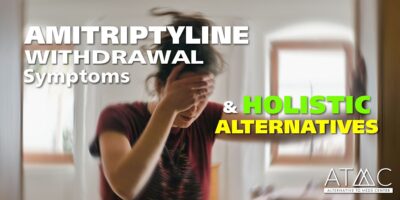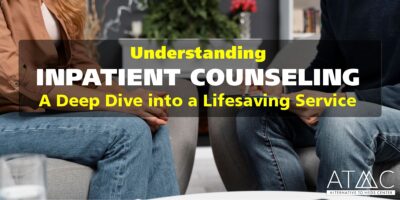Impo
Alternative to Meds Editorial TeamMedically Reviewed by Dr Samuel Lee MD
Table of Contents:
Holistic Psychiatry
Redefining Holistic … Naturally
No other licensed facility in the country has the history that we do with holistic and alternative therapies.
Unfortunately, other centers seem to fall far short on many key levels. For example, failing to focus on diet and nutrition. In addition, imperfect or rushed practices concerning safely tapering medications, and overlooking the impact of lifestyle factors on mental health, add to the problem. We provide top-shelf, non-toxic ways to address these issues.8,9
But, the term holistic is more than a mere buzzword. At Alternative to Meds Center, holistic psychiatry includes intravenous nutrients, exercise, acupuncture, counseling, neurotoxin cleansing, and much more. True holistic practices are best delivered by those who understand their value in application to mental health, and deeper teachings. In these ways, we can all continue to witness its benefits daily.
Holistic Detoxification

As a consequence, constant exposure to environmental poisons that our bodies and minds were not designed to handle, impacts our mental health. For example, consider the poly-aromatic hydrocarbons in exhaust fumes, chemical additives to food, mercury accumulating in our fish, flame retardants in our clothes and beds, benzene accumulation from plastics in our cars, neurotoxic pesticides, electromagnetic influences, medications, hormone mimickers, and parabens in our hygiene products, and polychlorinated biphenyls (PCBs) leaking into our groundwater. In contrast, our holistic detox treatment program utilizes advanced methods to help alleviate the harm to the body and the brain to restore balance and optimize overall health.10
Environmental Medicine & Mental Health Treatment
Environmental medicine studies the impact of chemicals in our environment and an individual’s physical, mental, and emotional responses to them. Addressing these negative impacts in a treatment setting provides many tools effective in holistic mental health treatment.
Sometimes overlooked, each person has a unique genetic profile, including genetic polymorphisms, that allows the processing of toxins. Where there are handicaps to this natural process, accumulations of poisons can occur, including heavy metals, pesticides, and medication waste developing in the body. These toxins are harmful and can lead to DNA damage, hormonal impairments, compromised neurotransmitter expression, and immune deficiencies. We use extraction techniques to relieve the body of these stressors, clinically shown to vastly improve mental health.11
More about Environmental Medicine …
Neurotoxin Removal in Holistic Psychiatry
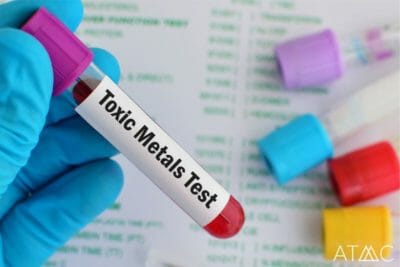
In this way, some toxins over-excite nerve cells to death, while others debilitate the expression of neurotransmitters that directly affect mood. Heavy metals, pesticides, and additives to food and hygiene products are common culprits. We use chelation, a process to remove toxic heavy metals such as mercury, lead, arsenic, and aluminum.12 Other organic poisons must be transformed based upon unique, genetically determined mechanisms. Clinical research has shown that toxins can impact gut microbiota, resulting in neurodegeneration, and many other negative consequences that affect our mental health.5 As a result, we designed a neurotoxin removal program to fit the individual, allowing the nervous system to re-regulate itself in the way that it was designed.
More about Neurotoxin Removal …
Neurotransmitter Rehabilitation in Holistic Mental Health Treatment
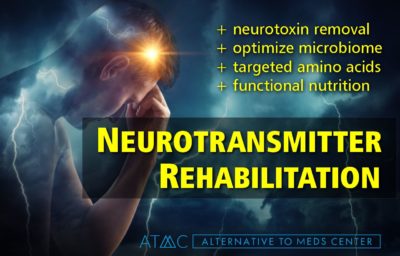
Drugs do not manufacture neurotransmitters. Serotonin, dopamine, endorphins, oxytocin, and others have amino acid precursors that are designed to naturally configure these highly important chemical messengers of emotion. By administering these nontoxic amino acid precursors, we help direct the body to replace potential deficiencies and balance what could be over-expressed.4,7
More about Neurotransmitter Rehabilitation …
Orthomolecular Medicine & Holistic Psychiatry
The term orthomolecular was coined by the late Dr. Linus Pauling, a double-Nobel prize laureate.
Orthomolecular medicine 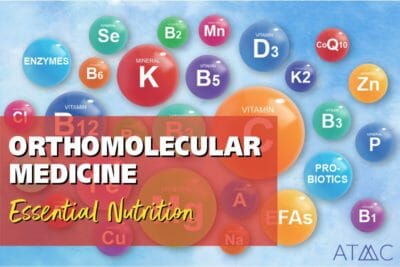
Notably, in 1952, Abram Hoffer, M.D, Ph.D., led the first double-blind, placebo-controlled study in the history of psychiatry, demonstrating niacin as a curative for schizophrenia.1 Today, orthomolecular medicine is highly regarded as a respite for those seeking alternatives to medication-based treatments.
Clearly, with a more nuanced approach to mental health, holistic psychiatry can benefit many more people who have not recovered fully within the more shortsighted drug-based treatment approach to human health.15




